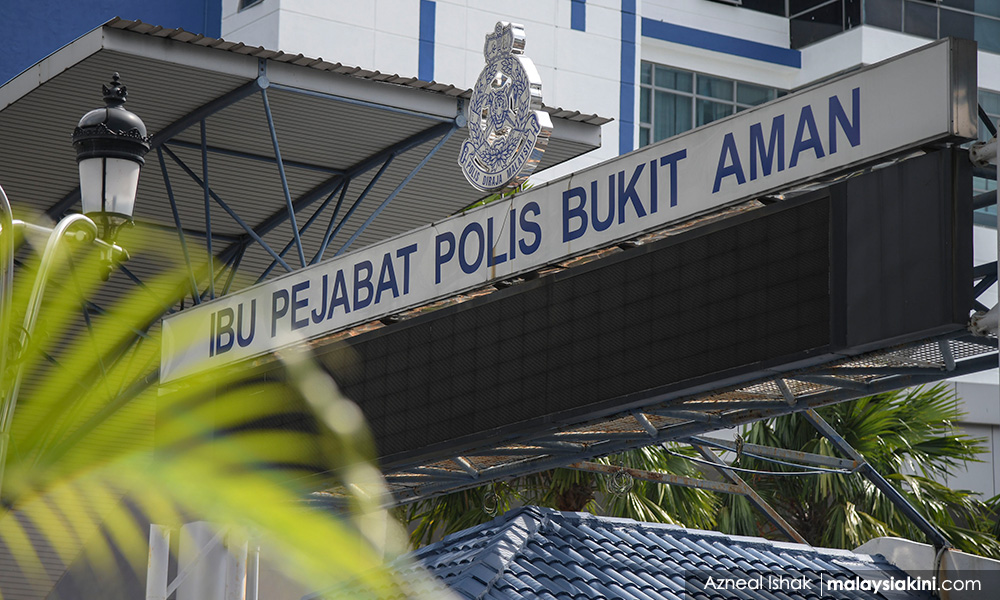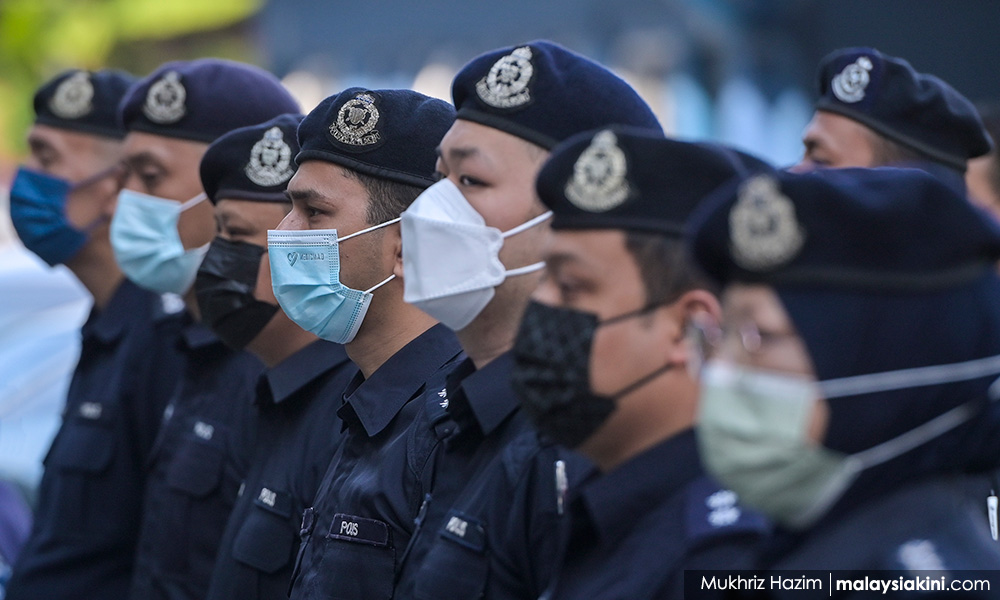During the administration of our fourth prime minister, Abdullah Ahmad Badawi, one of the major concerns at the time was the public perception of the Royal Malaysian Police (PDRM). The perception was that there was widespread corruption within the force and questions were also raised on the efficiency of the police in dealing with crimes.
As such, at the end of 2003, the then prime minister announced that a royal commission of inquiry would be established to look into issues relating to the police force.
The Royal Commission to Enhance the Operations and Management of the Royal Malaysia Police was constituted pursuant to the Commissions of Inquiry Act 1950. The RCI was chaired by former Chief Justice Mohamed Dzaiddin Abdullah.
The terms of reference of the Dzaiddin RCI included enquiring into human resources development of the police force, organisational structure and distribution of human resources and lastly, to make recommendations for the improvement and modernisation of the PDRM.
The RCI made public inquiries, received several hundreds of reports and suggestions and conducted two surveys. It then prepared a report which was later published in 2005. The RCI report was informally known as the "Dzaiddin’s report".
Dzaiddin’s report identified nine major challenges faced by the police force. These challenges include the changing socio-political environment of policing, corruption within the force, lack of equipment and logistics as well as unsatisfactory working and housing premises.
Other challenges include compliance with laws and human rights standards as well as the lack of awareness of women and child rights.
Taking into account these challenges, the Dzaiddin report identified one strategic objective: to transform PDRM into a "world class, 21st century organisation that is efficient, clean and trustworthy, dedicated to serving the people and the nation with integrity and respect for human rights".

The report found that the force had "strong paramilitary elements and tendencies, including an authoritarian approach" and the perception of itself as a “force” rather than a “service”.
The Dzaiddin report stated that the police force must see itself more as a “service” rather than a “force”, the guardian of the people’s rights.
In order to achieve the strategic objective of transforming the PDRM, 10 strategic thrusts were outlined by the Dzaiddin report. Within the 10 thrusts, the Dzaiddin report made 125 recommendations to improve the police force, with timelines for their implementations.
Three categories
The strategic thrusts can broadly be divided into three categories. First relating to policing, this includes modernising the functions of PDRM, a nationwide campaign to combat crime, improving investigative policing and eradicating corruption within the police force.
The second category of thrusts relates to rights and liberties. This includes ensuring that policing is consistent with human rights and laws and also raising awareness of the rights of women and children amongst the members of the police force.
Much literature has been written and many commentaries have been made on these first two categories of strategic thrusts. The prevalent takeaway from Dzaiddin’s report would appear to be the recommendation to set up an Independent Police Complaints and Misconduct Commission (IPCMC) in order to deal with complaints and reports of misconduct within the force.
Indeed, the failure to establish the IPCMC by successive governments has meant that this crucial reform, which would also increase confidence and promote transparency and accountability, has yet to see the light of day.

But many do not bring up the third category of strategic thrust, relating to the welfare, assets and logistics of the PDRM. These thrusts are equally as important and they include improving the remuneration and scheme of service of the PDRM, enhancing the human resources management of the force, upgrading the equipment and logistics and providing better work and housing premises for those in the force.
These internal aspects of the police force are equally as important as the other thrusts in order to achieve the objecting of transforming and reforming the PDRM.
Police accountability
Reforming the police force is not to punish the police force but in order to ensure that the police force is dynamic, resilient and continues to be equipped to face many of the current and future challenges to policing.
Indeed, police accountability is still a major bone of contention, as can be seen in the clash of ideas surrounding the Pakatan Harapan administration’s attempt to table an IPCMC bill. However, equal attention must be given to the welfare of members of the force as human resources management is crucial for any organisation.
Sixteen years after the Dzaiddin report was published, the aim to reform and improve the PDRM remains relevant. Many of the issues and challenges identified by the report are also still relevant today. To date, there is no official review by the government of the Dzaiddin report’s 125 recommendations.
It is high time that the government conduct a review of the nine challenges, 10 strategic thrusts and 125 recommendations in Dzaiddin’s report.
Only by doing so can we hope to transform the PDRM from a "force" to a "service", as envisioned by the RCI. - Mkini
SYAHREDZAN JOHAN is a civil liberties lawyer and political secretary to Iskandar Puteri MP Lim Kit Siang.
The views expressed here are those of the author/contributor and do not necessarily represent the views of MMKtT.




No comments:
Post a Comment
Note: Only a member of this blog may post a comment.